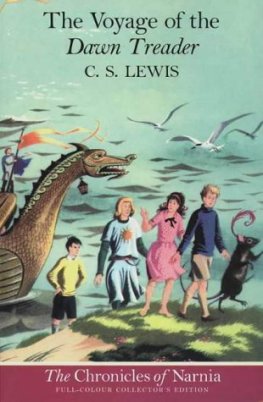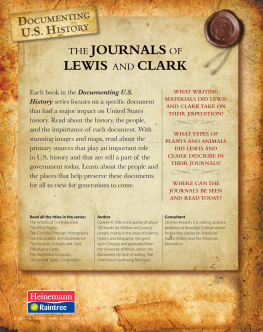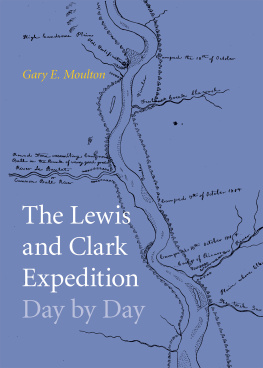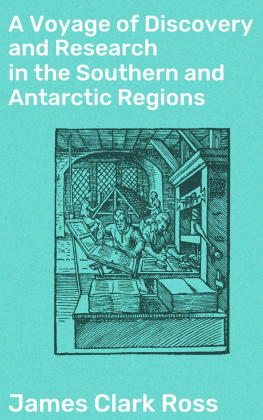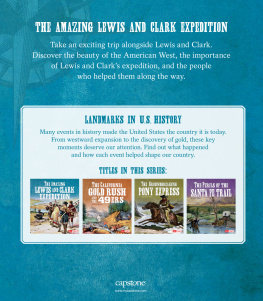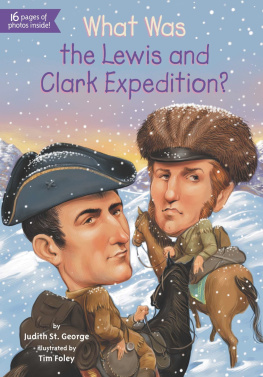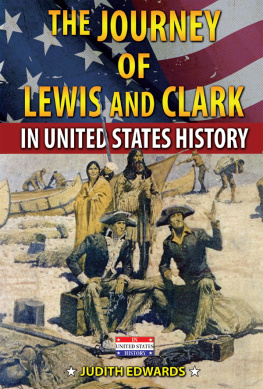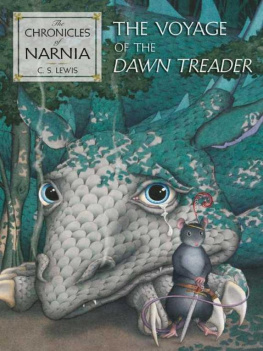Stephenie Ambrose Tubbs - The Lewis and Clark Companion: An Encyclopedic Guide to the Voyage of Discovery
Here you can read online Stephenie Ambrose Tubbs - The Lewis and Clark Companion: An Encyclopedic Guide to the Voyage of Discovery full text of the book (entire story) in english for free. Download pdf and epub, get meaning, cover and reviews about this ebook. year: 2015, publisher: HenryHolt, genre: Art. Description of the work, (preface) as well as reviews are available. Best literature library LitArk.com created for fans of good reading and offers a wide selection of genres:
Romance novel
Science fiction
Adventure
Detective
Science
History
Home and family
Prose
Art
Politics
Computer
Non-fiction
Religion
Business
Children
Humor
Choose a favorite category and find really read worthwhile books. Enjoy immersion in the world of imagination, feel the emotions of the characters or learn something new for yourself, make an fascinating discovery.

- Book:The Lewis and Clark Companion: An Encyclopedic Guide to the Voyage of Discovery
- Author:
- Publisher:HenryHolt
- Genre:
- Year:2015
- Rating:4 / 5
- Favourites:Add to favourites
- Your mark:
- 80
- 1
- 2
- 3
- 4
- 5
The Lewis and Clark Companion: An Encyclopedic Guide to the Voyage of Discovery: summary, description and annotation
We offer to read an annotation, description, summary or preface (depends on what the author of the book "The Lewis and Clark Companion: An Encyclopedic Guide to the Voyage of Discovery" wrote himself). If you haven't found the necessary information about the book — write in the comments, we will try to find it.
The Lewis and Clark Companion: An Encyclopedic Guide to the Voyage of Discovery — read online for free the complete book (whole text) full work
Below is the text of the book, divided by pages. System saving the place of the last page read, allows you to conveniently read the book "The Lewis and Clark Companion: An Encyclopedic Guide to the Voyage of Discovery" online for free, without having to search again every time where you left off. Put a bookmark, and you can go to the page where you finished reading at any time.
Font size:
Interval:
Bookmark:
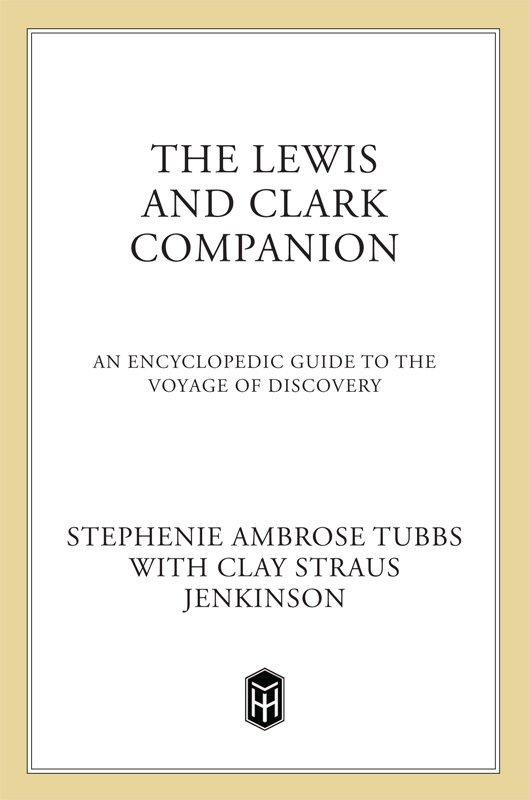


The author and publisher have provided this e-book to you for your personal use only. You may not make this e-book publicly available in any way. Copyright infringement is against the law. If you believe the copy of this e-book you are reading infringes on the authors copyright, please notify the publisher at: us.macmillanusa.com/piracy.
Please note that some of the links referenced in this work are no longer active.
To our honored parents,
Stephen and Moira Ambrose
and
Chuck and Mil Jenkinson
Many years ago when Moira and I began taking our children on annual grand adventures camping out west, we kept one purpose primarily in our minds: to learn about the history of a place you have to go there. You have to hike the trails, canoe the rivers, and climb the mountains. It would be hard work, for us and for them, but it would also be incredibly rewarding. We let this purpose guide us as we followed in the footsteps of George Armstrong Custer, Crazy Horse, Little Big Man, Chief Joseph, and of course on the trail of Lewis and Clark. Now, as our country approaches the bicentennial of the Corps of Discovery, there is more interest than ever in seeing the trail as the captains and their party did. People want to know more about their story; they delight in the details of the journals and seek out the scholars who can tell them all about who, what, where, when, and how. This excellently conceived and beautifully achieved companion to the Lewis and Clark Expedition answers the call. Its scope is comprehensive. Its accuracy is complete. It includes the most recent scholarship, from what we think happened to Seaman to Yorks later years; it includes an examination of Sacagawea, factually tells the story of her husband, Charbonneau, their son, and much more. It is a joy to read, both because one is always encountering something not previously known and because it is delightfully written. I should know. One of the authors, Stephenie Ambrose Tubbs, is our daughter; the other, Clay Jenkinson, is our friend.
Stephenie knows how to write; at the University of Montana she studied under two great western historians, K. Ross Toole and Harry Fritz. Along with our adventures on the Lewis and Clark trail in 1976, during which we all kept journals much as they did on the expedition, she lived in Missoula on a site Meriwether Lewis rode across on his return trip. She now lives in Helena on a site William Clark walked near if not over, and from her home she can see the Gates of the Mountains, named by Meriwether Lewis. She has published several articles on local history and remains deeply involved with the Lewis and Clark world.
North Dakotan Clay Jenkinson also grew up steeped in Lewis and Clark. After attending Oxford University on a Rhodes scholarship and studying at the University of Minnesota, he currently travels the country giving historical interpretations of Meriwether Lewis and Thomas Jefferson, among others. He reads, writes, lectures about, indeed seems to breathe, the Lewis and Clark Expedition. His work The Character of Meriwether Lewis is one of the most insightful studies to be written on Lewis. Along with his recent publication on growing up in North Dakota, he has received presidential recognition for his work and has appeared on the Ken Burns PBS series on Thomas Jefferson. He does more than charm his audience; he captures them, entertains them, and educates them.
This companion to the Lewis and Clark Expedition gives descriptions covering a bit of everything in the journals. At one point I could even taste the boudin blanc and smell the beaver castor thanks to the thorough text. But for me the greatest delight is the people. Nothing is more fascinating to people than learning about other people. In reading the stories of the major and minor characters encountered in this fascinating journey, we gain a much more complete understanding of the Voyage of Discovery and its motivating force. This companion accomplishes what all such works strive to dobe a complete account of the people, places, and things associated with the Corps of Discovery. In my opinion, from now on it will be the basic reference source in every Lewis and Clark scholars library.
Stephen E. Ambrose
August 2002
The Lewis and Clark Expedition (18031806) was the brainchild of Thomas Jefferson. The third president of the United States had a lifelong interest in American Indians, the flora and fauna of the New World, and the geography of the American West. Even before he purchased the Louisiana territory from Napoleon Bonaparte in 1803, Jefferson had launched what we call the Lewis and Clark Expedition. Jefferson wanted Captain Meriwether Lewis and his colleagues to map the West, chart its river courses, determine latitude and longitude of significant geographic features of the landscape, study the native peoples who lived in the region, inventory plants, animals, soils, minerals, and climate conditions, persuade the peoples of Louisiana to live in peace with one another under the security umbrella of the United States government, and make preliminary arrangements for trade between Indians and merchants based in St. Louis. President Jeffersons instructions were daunting. He essentially sought to project the Enlightenment onto the American West, and he conceived of Meriwether Lewis and William Clark primarily as data collectors in the wilderness.
Jefferson, like the American Philosophical Society of which he was the president for many years, gave his life to the collection and dissemination of useful knowledge. It is no coincidence that his one published book was not a work of the imagination, but a nonfiction almanac, Notes on the State of Virginia .
The Lewis and Clark Expedition was a scientific enterprise, funded by the Congress of the United States, but it was also a military mission into a contested and uncertain country. It was an adventure story, Americas first great epic, but it was also a series of carefully planned encounters with the aboriginal peoples of the Missouri and Columbia River valleys. It was the story of friendship between two remarkable young army officers, but it was also an exercise in continental (even global) geopolitics by a nation that believed it had a special destiny in the history of civilization.
Lewis and Clark left St. Louis (actually St. Charles) at the mouth of the Missouri River on May 14, 1804, and returned on September 23, 1806. Their journey has been called the most remarkable exploration mission in American history, and they (and five other known journal keepers) have been called the writingest explorers of all time.
The Lewis and Clark Companion now takes its place in the extensive and growing literature of the Lewis and Clark Expedition. A book of this sort is inevitably derivative. Our challenge was to synthesize the mass of the existing knowledge about the Lewis and Clark Expedition into a single unified volume. We have, accordingly, read the journals with great care, but we have concentrated our energies on compiling and evaluating the immense secondary literature on Lewis and Clark.
We have attempted to produce an accurate, thoughtful, and reasonably complete companion volume to the journals of Lewis and Clark, a single volume to which any reader can turn for reliable preliminary information about aspects of Lewis and Clark. Some subjects we have omitted to keep this book from swelling out of control. Some subjects we have merely overlookedwe trust our readers will point these out.
Font size:
Interval:
Bookmark:
Similar books «The Lewis and Clark Companion: An Encyclopedic Guide to the Voyage of Discovery»
Look at similar books to The Lewis and Clark Companion: An Encyclopedic Guide to the Voyage of Discovery. We have selected literature similar in name and meaning in the hope of providing readers with more options to find new, interesting, not yet read works.
Discussion, reviews of the book The Lewis and Clark Companion: An Encyclopedic Guide to the Voyage of Discovery and just readers' own opinions. Leave your comments, write what you think about the work, its meaning or the main characters. Specify what exactly you liked and what you didn't like, and why you think so.

